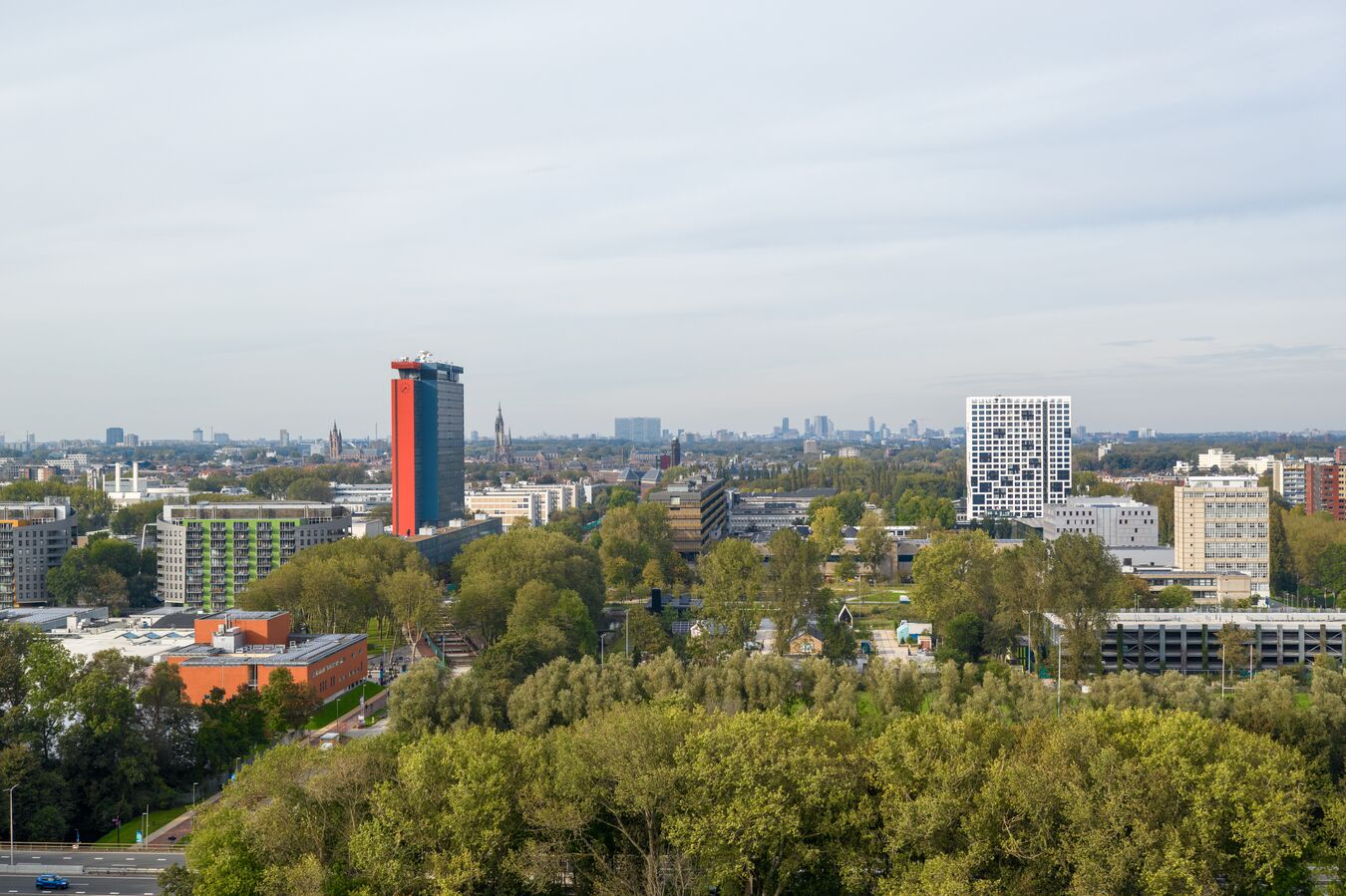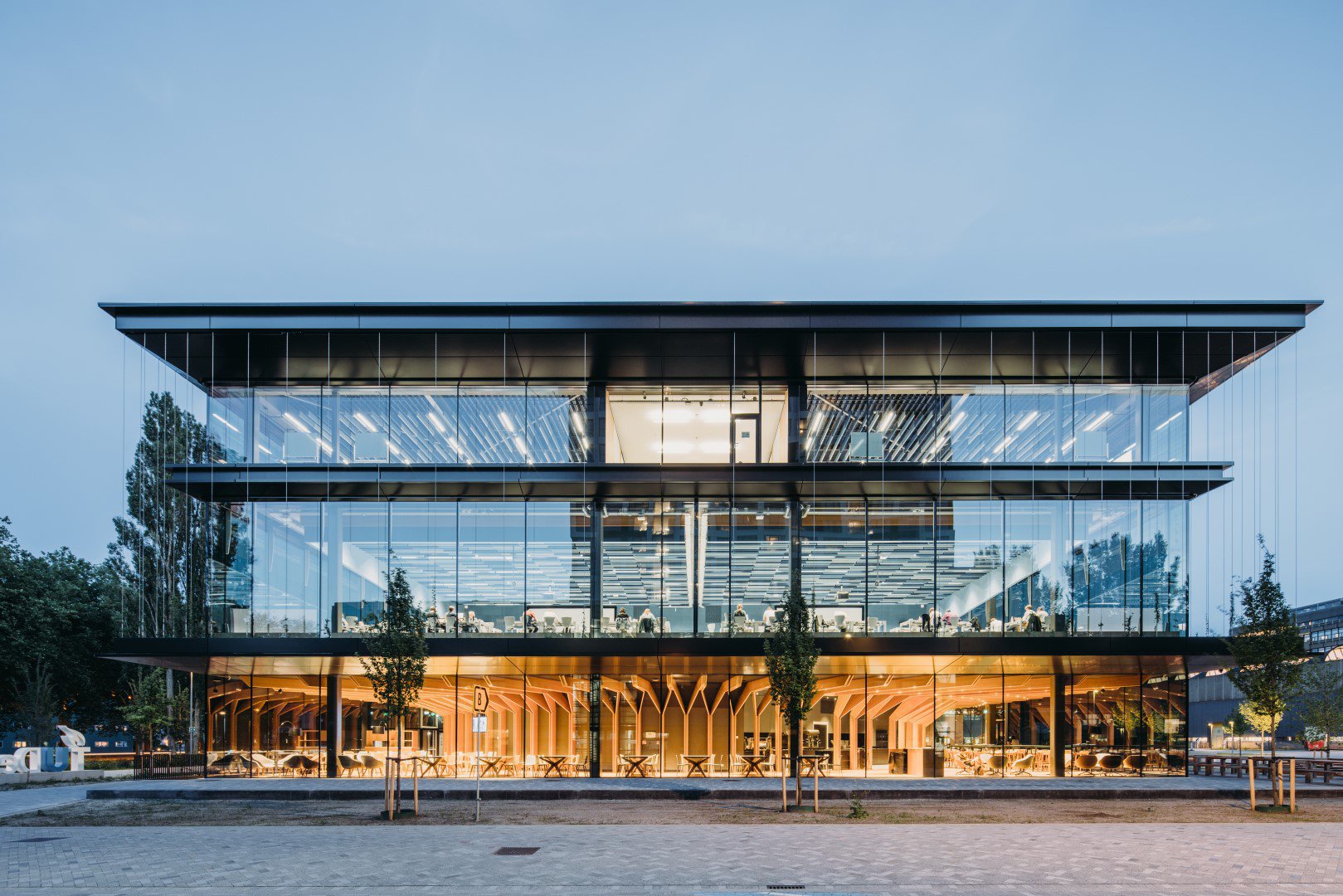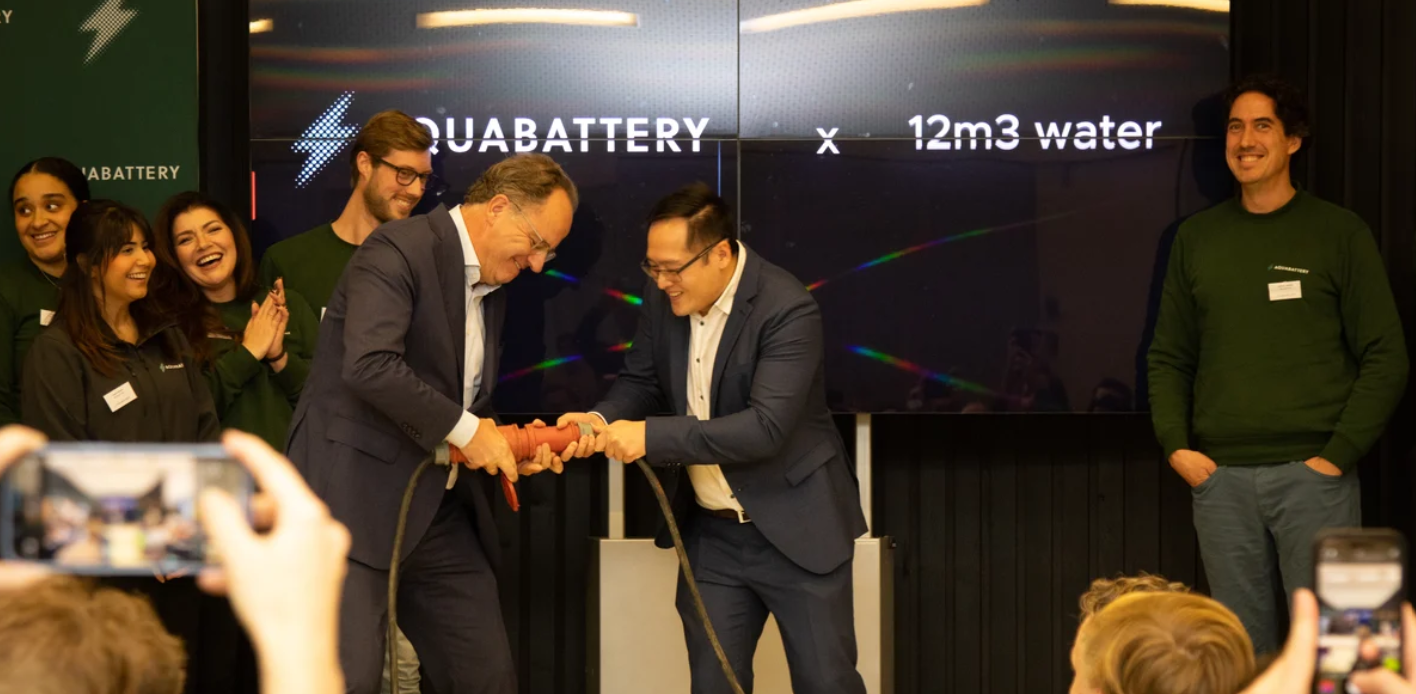Bird Control Group is making headway with their robot lasers for scaring away birds from crops, air strips or industrial complexes in an animal-friendly manner. The company is one of the first new tenants in NEXT Delft; a great moment to speak to CEO Rik Bakker about the company, its plans for the future and the imminent relocation. “NEXT Delft is a perfect response to the trend for hybrid working.”
It really was a touch of serendipity: Bird Control Group was founded ten years ago by Steinar Henskes, a student at TU Delft at the time, after he had unwittingly discovered that the green laser light that is used for such things as surveying, also scares away birds. Although this technology had been in use for decades. the link to bird scaring had never been made. “All of our patents are based on this discovery,” tells Bakker. “Birds sense green laser light as a physical danger and fly away.”
The founder of the company recognised the opportunity of turning this fact into a product: an animal-friendly way of scaring away birds. Henskes combined the lasers with embedded software and a housing to form a robot that can be used 24 hours a day, and with that their prototype was a fait accompli.
Short circuit
Now Bird Control Group’s products are sold in over a hundred countries, with a focus on North America, Australia and Western Europe. Customers represent twee main sectors: major agricultural concerns that have hundreds of hectares of land and major industrial customers such as solar and wind parks, airports and industrial complexes.
“The common denominator is that we either help customers to increase the yield of their land or we ensure that industrial partners can keep running their operational processes safely.” Bird droppings, for example, can result in short circuits in electrical substations.
Machine learning
Bird Control Group still controls its own technology: R&D is done in-house. As yet, the robot is not fully autonomous: it responds according to pre-programmed patterns. “We are considering applying AI in the future,” says Bakker. Using AI has various advantages: the robots become smarter, and even more targeted and safer. It also extends their operating life, as they don’t have to be ‘on’ all the time.
Bakker, who is a business management expert himself, has been with Bird Control Group since August 2020 after working elsewhere for twenty years, the last nine of which for Philips. The challenges he identifies for the company are more operational than technical; expanding the reseller network is a priority. “We sell our product directly as well as via partners. Sometimes it can be difficult to find external parties who have sufficient know-how to be able to market our product.”
Broad role
Since 2020 he has devoted much attention to developing the organisation, which means that Bird Control Group is now well positioned to ‘realise the potential of the market’, as Bakker puts it. “I enjoy seeing how business operations can be moulded to the opportunities in the market.”
“I very consciously chose to leave a large company,” is how Bakker describes his switch from Philips to Bird Control Group. “I wanted a broader role and a more hands-on position,” he says. Bakker is extremely happy with the broad scope of his new activities and how he is able to put all of his past experience to good use.
Text continues below visual
NEXT Delft
While the animal-friendly laser has been used with success on the TU Delft Campus (see box), for Bakker the innovation ecosystem is still largely uncharted territory. Despite ‘all kinds of informal contacts’, there is no structural co-operation with, for example, RoboHouse or the Ag Tech Institute. Bakker does expect the move to NEXT Delft to bring them into contact with other SMEs or scale-ups located there, and to be able to use them as sounding boards.
Bird Control Group is still located in YES!Delft. While they’re still perfectly happy there, the company has by now outgrown the start-up phase and, therefore, the incubator. “We’ve been perfectly happy at YES!Delft these past few years, but our team has become increasingly international and our manner of working has changed, a development that was accelerated by the Covid pandemic,” he explains. “Our main reason for coming to the office is no longer to work, but to work together.” The social component is much more important, and this has implications for the office design. “I think NEXT Delft addresses this perfectly.”
Contributing to the UN goals
Bakker and his team will be getting a multifunctional office area in the new multi-tenant business building. The central point is a large, open-plan workspace in which various departments can work together more easily. “We have also invested in smaller rooms you can withdraw to if you want to work in peace or hold meetings (in person or online).”
As is the case with many entrepreneurs on the TU Delft Campus, Bakker becomes very enthusiastic when asked about what drives him. “The fantastic product we are making really fires me up.” Generally speaking, robots are an excellent alternative for – often – traditional, low-tech, animal-unfriendly products that actually have a limited effect.” They also contribute to achieving UN goals on food security with regard to production. “The fact that we can have a direct influence on this is really great.”
The transition from a multinational concern to a young company in its growth phase, and one that has a positive social impact, suits him well, he assures us, in closing. “I was appointed to enable further professionalisation and growth. This has been a unique opportunity for me and, so far, it has been a very enjoyable journey.”




